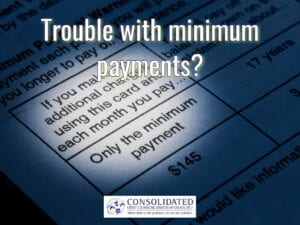Who doesn’t like a good reward? No one! Reward points are a fun part of the consumer market, but only after you’ve sorted through all the programs to find the right one. Even after that, there’s no sense in letting a good thing go to waste so it’s worth spending some time to figure out how to maximize the perks of the program you chose. The whole process is complicated! We’re uncomplicating things by offering up all the best practice advice for setting yourself up for maximum reward.
Credit where credit’s due
We’re focusing mostly on credit card reward points programs. Keep in mind that many of the same guidelines can work for any reward or loyalty program. So don’t be afraid to put all this knowledge to good use for your whole reward program portfolio.
Tips
With a little planning, these tips can help you squeeze a lot of juice out of your rewards point program
Start with intent
Take a second to think about the end game. What do you want your rewards program to do for you? Do you want to save money or groceries? Maybe you want to treat yourself to a yearly trip? Some programs even allow for putting your cashback into your RRSP or TFSA. There’s no wrong answer. This is all about narrowing your search so you can focus on the programs that make your end goal a reality.
Come here often?
Don’t reinvent the wheel. Look for programs that offer rewards for shopping where you already shop. You already know you like what you’re buying so you’ve given yourself the best shot of building rewards. You’ll also avoid the torturous debate between the product you love and the rewards you want.
Timing is everything
Once you’ve picked the perfect reward don’t jump right in. Like seasons and retailers, reward programs tend to have cycles. Many of them revolve around bonuses. The most common is a sign-up bonus. Reward companies will whet your appetite with a signing bonus like a huge bucket of points, waiving a fee, or a better reward ratio for the first three months. It’s a nice parlour game that gets you in the door and then keeps you there because it tricks you into thinking it’s easier than it is to earn points. There’s no sense in turning down free points, of course, just mak’em count. Wait until they’re offering something that fits with your end game, then pounce.
Good timing may also mean waiting to sign up until you’re ready to make a certain purchase. Maybe you’re looking to buy a new barbecue or phone. Those big purchases rake in a lot of points! This is especially true because you’re avoiding interest by paying it off right away.
Additional perks and benefits
Some rewards programs sweeten their programs with great perks. There are some travel reward programs that offer free airport lounge access, free seat upgrades, or travel insurance. Make note of these added perks, because you may find them worthwhile even if another card offers a little less bang for your buck.
Recurring = rewards
Whenever possible, use your reward credit card to pay for any recurring bills. Charges for your phone, utilities and subscriptions can add up to a lot of reward points over time, Whether on your card or not, it’s money you’re spending anyway so why not get a reward for spending it?
Let’s go to the virtual mall
Some reward programs have online portals or “virtual malls” where reward clients can use their points to get discounts at numerous other retailers. Sometimes there’s even an option to use your points to buy pre-paid credit cards or gift cards for these associated retailers. Allowing you to buy whatever you want, instead of choosing from a curated selection of items. Access to these online portals is a great way to stretch the value of your reward points.
Bonus offers
Reward programs, similar to typical retail businesses, like to drum up business by doing promotional offers. They might look something like double points days where you earn twice the amount of points by shopping on a specified day. Reward points can really add up quickly by taking a little time to check out what’s happening with your reward program regularly.
Reward re-assess
Things change. Programs change, and our lives change. A couple that just had a baby may want to switch to a cashback program from a travel program. Alternatively, programs sometimes change and these changes may mean the program doesn’t fit the goal you had in mind anymore. Every few years reassess your rewards portfolio. Do the rewards programs you use still make sense for what you want and your goals? If not, do a search from something that fits your life now.
Cautions
There are some common pitfalls people get caught in when it comes to reward points. Many of them can quickly negate the benefits. Below are a few ways you can steer clear of them so you can enjoy the full potential of your points.
Read the teeny tiny print
All rewards programs come with a set of rules, how much you have to spend to earn points for example. Read all the fine print that explains the program’s rules. Many people lose out on benefits or end up going with a less-than-ideal program because they don’t understand the ins and outs of the program. Some rules to watch out for.
Fees: Some reward programs, especially those associated with a credit card involve a fee.
Reward ceilings: It’s not unusual to find that there’s a limit to how much cashback or points you can earn within a certain timeframe.
Penalties: Get to know what happens if you cancel your card or return an item. Do you get penalized? What other actions could incur a penalty?
Expiry dates: Many program rules include expiry dates, meaning you have to use the points within a certain time period or you lose them.
Spending levels: Reward programs are known to promote a certain reward level and only with a closer look do you find out that that reward level is only available after you’ve spent a certain amount. At times, reward points don’t even start accumulating until someone spends a specified amount. Be realistic and ask yourself if you truly will spend that amount.
Tip: If you need to spend more to meet certain spending criteria, buy gift cards. Some companies are catching on so this isn’t always an option, but keep it in mind in case it is.
Credit card habits
it’s simple, don’t get a credit card just for the reward points if you aren’t on top of the credit card debt you already have. If you only pay the minimum, typically carry a balance, or regularly max out your cards, it’s never a good idea to take on more debt until you get the debt you currently have under control. Besides, any reward you get will be quickly outshined by interest costs.
Wrap up
Reward points are a fun part of life! With a little thought, they can bring a lot of value to your overall financial portfolio. For maximum reward, start with your intent, go for a program that focuses on where you already shop, and read the rules. Most of all, don’t put yourself further into debt or financial strain just for a rewards program. If this advice came a little too late and you need help getting out of debt, we can help. Call us to get a free consultation with one of our trained Credit Counsellors. There are many options out there to get back on track. They’ll help you figure out which one is best for you.





